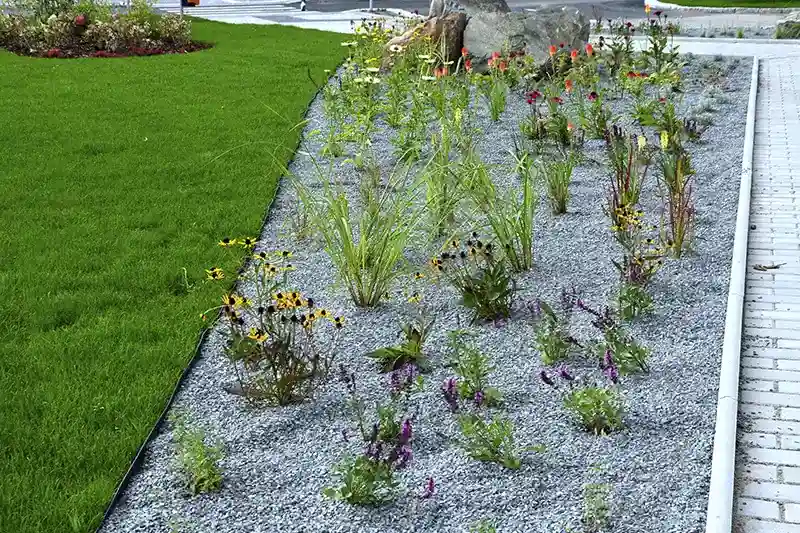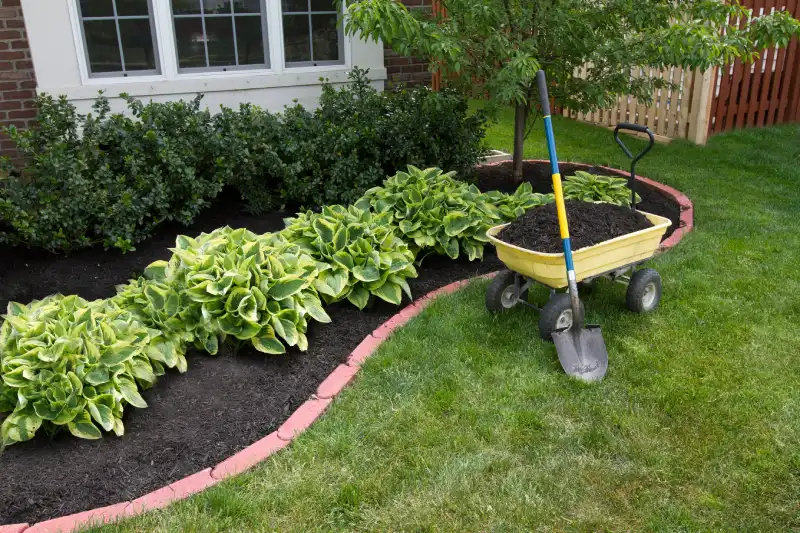Keep Your Land Healthy with Mulch
Applying mulch is an essential practice for maintaining a healthy and attractive garden or lawn. It offers interesting benefits, such as preserving soil moisture, regulating temperature, and suppressing weeds. However, many homeowners wonder “how long does mulch last? and when should it be replaced? Today, you will learn about the factors that affect the lifespan of mulch and provide guidelines for maintaining its effectiveness.

Types of Mulch and Their Lifespan
How long does mulch last? First, you should know that the type of mulch you choose significantly impacts its longevity. Organic mulches like wood chips tend to decompose over time and typically last between six months to two years. Hardwood and cedar mulches tend to decompose slower, offering a longer lifespan compared to softer woods like pine. On the other hand, non-organic mulches do not decompose and can last indefinitely. However, they may still require periodic maintenance to keep them looking fresh and tidy.
Environmental Factors
Environmental conditions play a crucial role in determining how long mulch lasts. In areas with heavy rainfall, mulch can break down more quickly due to increased moisture and microbial activity. Conversely, in dry climates, mulch could last longer but may also require more frequent replenishing to maintain adequate soil moisture levels. Additionally, extreme temperatures can accelerate the decomposition process of organic mulches. Mulch in shaded areas tends to decompose slower than mulch exposed to full sun, where higher temperatures and UV exposure can speed up the breakdown process.

Mulch Maintenance
Regular mulching maintenance can extend the lifespan of your mulch. Fluffing the mulch periodically with a rake can improve air circulation and slow down decomposition by preventing compaction. Adding a new layer of mulch each year can also help maintain its benefits and appearance. For organic mulches, a depth of 2-3 inches is typically recommended to ensure effective coverage while allowing for proper air and water flow. Non-organic mulches, while longer-lasting, may need occasional cleaning and repositioning to maintain an even layer.
Signs It’s Time to Replace Mulch
Knowing when to replace mulch is key to maintaining its effectiveness. For organic mulch, visible signs of decomposition, such as a thin or patchy layer, indicate that it’s time for replenishment. Fungal growth, such as mold or mushrooms, can also signal that the mulch is breaking down and needs to be replaced. Non-organic mulch may not decompose, but it can become discolored, compacted, or displaced over time. Regularly inspecting your mulch and addressing these signs can ensure your garden remains healthy and well-maintained.
How Long Does Mulch Last? Call Us and Get Answers!
If you have zero knowledge of how to mulch your yard, call Prime Landscaping Solutions. We can give you the answers and solutions you need to keep your lawn in Bend, OR healthy. Give us a call at (541) 254-8112!